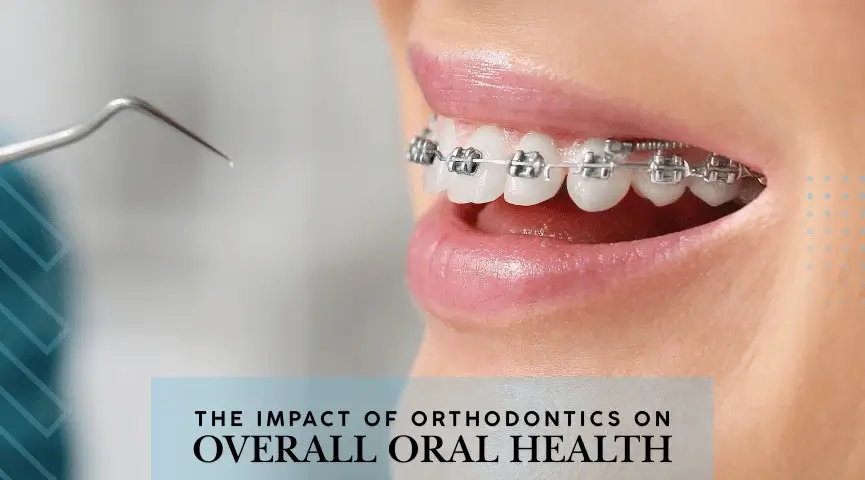
October 3, 2024
Orthodontics often brings to mind images of straight teeth and a flawless smile. Many see it as a cosmetic choice, yet its impact goes much deeper, reaching into long-term oral health and wellness.
Misaligned teeth and improper bites lead to various health issues like gum disease, tooth decay, and jaw discomfort, affecting overall health more than most realize. Orthodontic care enhances physical health by creating a healthy, functional bite and significantly boosts self-esteem and confidence.
Looking beyond aesthetics reveals orthodontics as a vital contributor to both oral health and a happier, more confident life.
What is Orthodontics?
Orthodontics is a dental specialty focused on diagnosing, preventing, and correcting misaligned teeth and jaws. Orthodontists trained for this purpose employ various treatments to improve alignment and bite.
Common orthodontic solutions include traditional braces, clear aligners like Invisalign, and retainers, each tailored to address different alignment issues. While braces are popular for adolescents, orthodontics benefits people of all ages. Adults increasingly seek orthodontic care to address both appearance and functional concerns.
A common misconception is that orthodontics only enhances appearance, but the impact goes far beyond looks. Misaligned teeth can lead to bite problems, speech issues, and difficulty cleaning teeth, which, if untreated, may contribute to decay and gum disease.
Thus, Orthodontic treatments provide lifelong advantages, promoting oral health and functional ease, regardless of age. Specialists can offer advanced options for residents seeking quality orthodontics in Geneva to meet their unique needs.
Core Oral Health Benefits of Orthodontics
Alignment and Bite Correction
Correcting misaligned teeth and fixing bites or malocclusion prevents uneven wear on teeth. When teeth are not aligned, some areas experience more pressure, leading to faster wear and even enamel erosion.
Malocclusion can also contribute to temporomandibular joint (TMJ) disorders, which cause jaw pain, headaches, and discomfort. Orthodontic treatment corrects these issues, ensuring the teeth meet evenly when biting down, improving comfort, and preserving teeth.
Improved Oral Hygiene
Properly aligned teeth are easier to clean. Crooked or crowded teeth create tight spaces that toothbrushes and floss have difficulty reaching. Food particles and plaque can accumulate in these areas, leading to cavities and gum disease.
With orthodontic treatment, teeth are spaced evenly, reducing these hidden areas. This makes daily cleaning more effective, decreasing plaque buildup and lowering the risk of long-term dental problems.
Gum Health
Healthy gums depend on well-aligned teeth. When teeth are too far apart, or overly crowded, gum tissue may become irritated or inflamed. Crowding can push gums out of place, while excess spacing allows bacteria to accumulate around the gums.
Orthodontics improves tooth alignment and spacing, promoting healthy gums and reducing periodontal disease risks.
Speech and Chewing Efficiency
Orthodontic treatment also aids in speech and chewing. Misaligned teeth or an incorrect bite can impair speech clarity, particularly for sounds like “s,” “z,” and “t.” Proper alignment allows for smoother speaking patterns.
Chewing efficiency improves as well, enabling people to break down food effectively. This reduces stress on the digestive system and improves nutrient absorption, directly linking to better overall health.
Orthodontics and Systemic Health
Reducing Risks of Gum Disease
Orthodontics directly reduces the risk of gum disease, which is essential for overall health. Gum disease, particularly in advanced stages, is linked to systemic health problems, including heart disease and diabetes.
Misaligned teeth trap bacteria and plaque, increasing the risk of infection and inflammation. Orthodontic treatments that realign the teeth help lower these risks by making it easier to maintain clean teeth and healthy gums, protecting systemic health.
Preventing Digestive Issues
Properly aligned teeth help in effective chewing, which supports good digestion. Teeth that don’t align well create chewing problems, leading to large food pieces reaching the stomach. This increases the digestive system’s workload, causing issues like bloating and indigestion.
Orthodontic treatments enhance bite functionality, enabling patients to chew food into smaller particles that are easier to digest, reducing digestive complications, and improving nutrient absorption.
Links to Respiratory Health
Orthodontics can even impact respiratory health, especially for those with malocclusions that obstruct airflow. For instance, specific bite issues, like a deep overbite, may restrict the airway, contributing to breathing problems. This restriction often affects sleep quality, sometimes resulting in sleep apnea.
Orthodontic treatments can adjust the bite and jaw alignment to open up the airway, potentially improving breathing and sleep quality and reducing snoring in certain patients.
Psychological and Social Benefits
Boosting Self-Esteem and Confidence
A straight, attractive smile has a strong psychological effect, often boosting self-esteem. People with aligned teeth are generally more confident in social interactions, which can impact both personal and professional relationships. A smile they feel proud of leads people to smile more often, projecting a positive image and helping them feel comfortable in social settings.
Reducing Anxiety About Oral Health
Orthodontic treatment improves the look of teeth and alleviates concerns about dental issues. People who know their teeth and bite are well-aligned are less likely to worry about future dental problems, as alignment reduces risks of cavities, gum disease, and other complications. This peace of mind allows them to focus more on maintaining health and less on possible dental issues.
Orthodontic treatment is about far more than a straight smile. It is about building a foundation for lifelong oral health. From preventing tooth wear and gum disease to improving chewing efficiency and respiratory health, orthodontics plays a crucial role.
Additionally, the confidence boost that comes with a healthy, aligned smile is undeniable. If you’re interested in the benefits orthodontics provides, consider consulting an orthodontist. Investing in orthodontic care today can lead to significant health benefits and a brighter, healthier smile for years to come.






